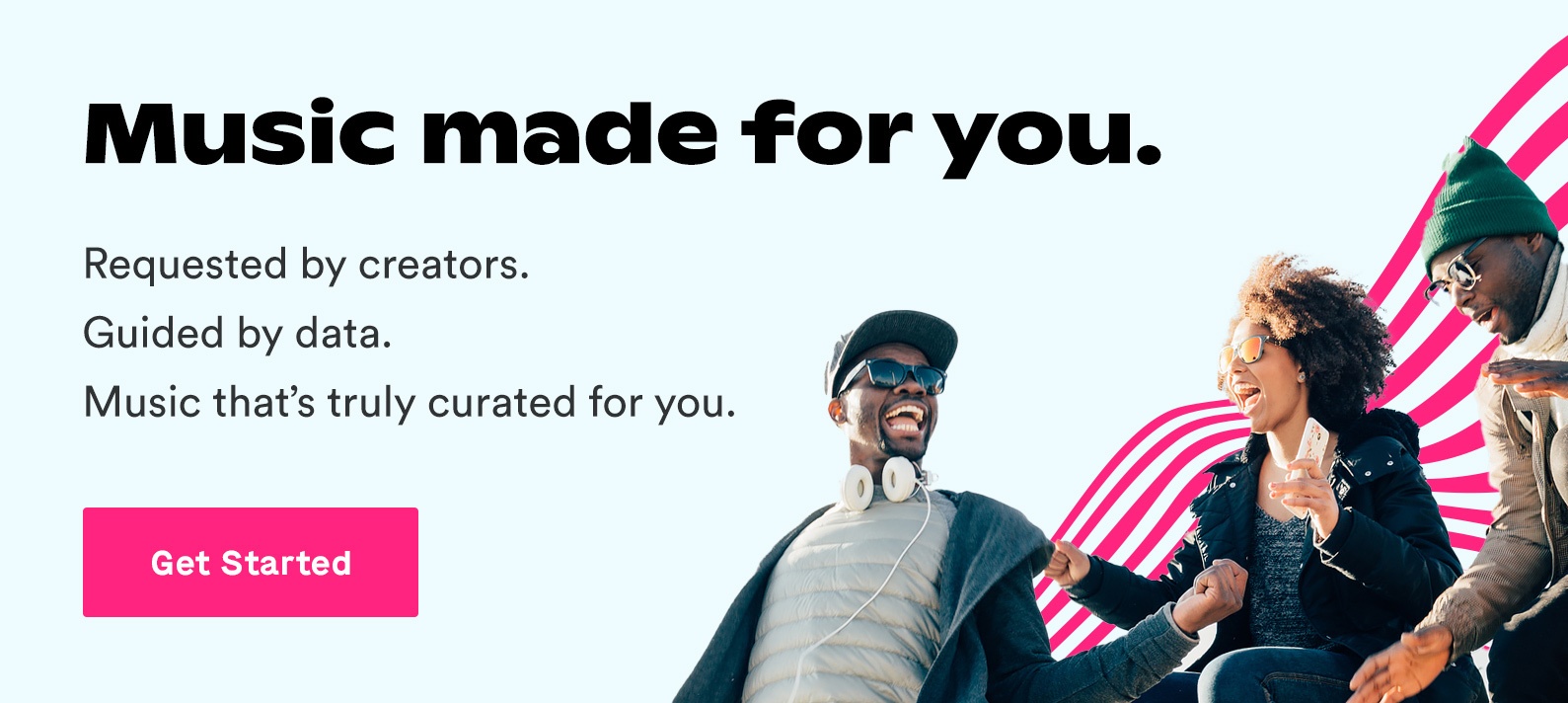Too many creators have been burned by copyright strikes.
And the tide only seems to be getting worse.
Digital Millennium Copyright Act strikes, or DMCA strikes if you’re into the brevity thing, are now mainstays of YouTube, Facebook, and Twitch.
Even though content creators may toe all the lines enshrined in each platform’s policy, the algorithms routinely smite down seemingly innocent videos. Powerful as they are, the technologies that flag copyright violations contain varying degrees of inaccuracy.
So what are you supposed to do?
While you can never be totally safe — the robot overlords are simply too unpredictable — you can take measures to mitigate their aggression.
In particular, you can make sure the music you license only comes from one source, and one single owner i.e, a wholly-owned music library.
We’ve worked for over a year and a half to transition Soundstripe’s library to a wholly-owned status, which is good for creators.
Why? Because it allows us to provide the best copyright protection in the stock music industry.
In this article, we’ll explain how DMCA strikes work, why music licensing matters, and why a wholly-owned library is a reliable shield against the invisible machines that flag content as copyright infringement.
TLDR: Soundstripe’s music library is now wholly-owned, which means you can shield your content from DMCA strikes.
It all starts with music licensing
Music copyright is convoluted, which is why I won’t go into a dissertation about it. However, to understand why DMCA strikes happen, you have to understand the basics of music copyright.
Here are the cliff notes:
Every piece of music on the radio has two parts: like the heads and tails of a coin. And each piece has different rights holders, i.e., humans who own the copyright to the music.

On one side, you have the song itself. This encompasses the lyrics and musical notes that form the very fabric of the song. The songwriter (or in some cases, songwriters) own this side of the coin. They often employ publishers to distribute the song and performance rights organizations to collect royalties.
On the flipside (yes, more coin metaphors) you have the master recording. This is the digital file created by whoever plays the song and records it. Typically, labels and artists under contract own the rights here. (But mostly labels.)

In a traditional music licensing model, you have to get permission from every rights holder to use a song — the songwriters, the performing artists, the labels. Yes, it’s insane.
That’s where royalty free music (aka stock music) came from. The industry teleports creators through all the red tape so you can more easily access the music your projects deserve.
But even this new music licensing landscape doesn’t fully protect you from DMCA strikes. Where you get your music from today matters as much as it ever has. Here’s why.
If you go through a "wholly owned" music library like Soundstripe, we are the only party you have to work with because we are the sole owner to all of the copyrights to all of our songs. That means simpler licensing, and far less risk of misguided DMCA claims. (More on this later.)
So that’s music licensing. Or an abridged version at least.
How rights holders weaponize Content ID
Rights holders make money off of the songs that they own. So when you use a copyrighted song without permission, you’re technically stealing because you aren’t paying royalty fees.
“But how will they ever know,” you ask. Well, YouTube, Facebook, and Twitch have all developed complex algorithms to identify misuse of copyrighted songs.
These systems are all based on the Digital Millennium Copyright Act, which basically set the guidelines for copyright infringement on the internet.
As I’ve already noted, using a copyrighted song without permission is illegal, and thanks to Content ID and other powerful algorithms, rights holders have the ability to police how their music is used with a shockingly wide net.
The problem is, these titanic police made of code aren’t always accurate or logical. They simply look for songs that match what’s on their list and gleefully issue bans. (Ok, perhaps not “gleefully,’ they don’t have feelings, I guess.)
Either way, that puts content creators on their back foot. It’s your responsibility to protect yourself, and where you get your music from matters.
Why a wholly-owned library matters
Music licensing companies can get music in three ways:
- Create it themselves
- Negotiate non-exclusive deals with artists
- Negotiate exclusive deals with artists
The non-exclusive and exclusive points are the ones you should care about. Here’s why: non-exclusive songs could be more likely to get pinged by Content ID.
If an artist licenses their song to three different royalty free music companies, then you’ll have three different parties using Content ID to track whether or not creators are using that song.
Even if you have a license from one of the RFM sites, you could get pinged by another that believes you’re using their song without permission.

That’s because the artist isn’t telling everyone where they’re licensing their music. So music licensing company A might register the copyright for a song with YouTube, while music licensing company B does the exact same thing.
And that puts you at risk.
That’s why we’ve spent the last year and half building up a music library that’s 100% exclusive. All of the songs in our library can only be licensed through Soundstripe, so there’s no one else looking for the songs you license from us.

Therefore, the chances of your content getting flagged are exponentially lower when you license music from Soundstripe.
And I think we can all agree that’s a good thing, right?
Check out our music library here and stop worrying about DMCA strikes for good.
Further reading
Interested in reading more top resources and getting our best filmmaking tips and tricks? Here are a couple of our most popular articles from across the Soundstripe blog:


